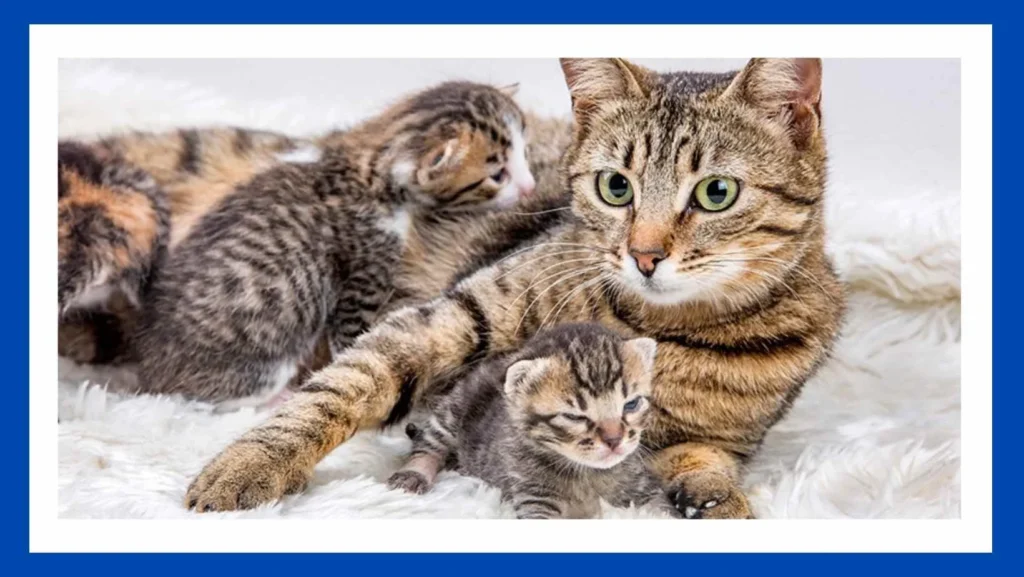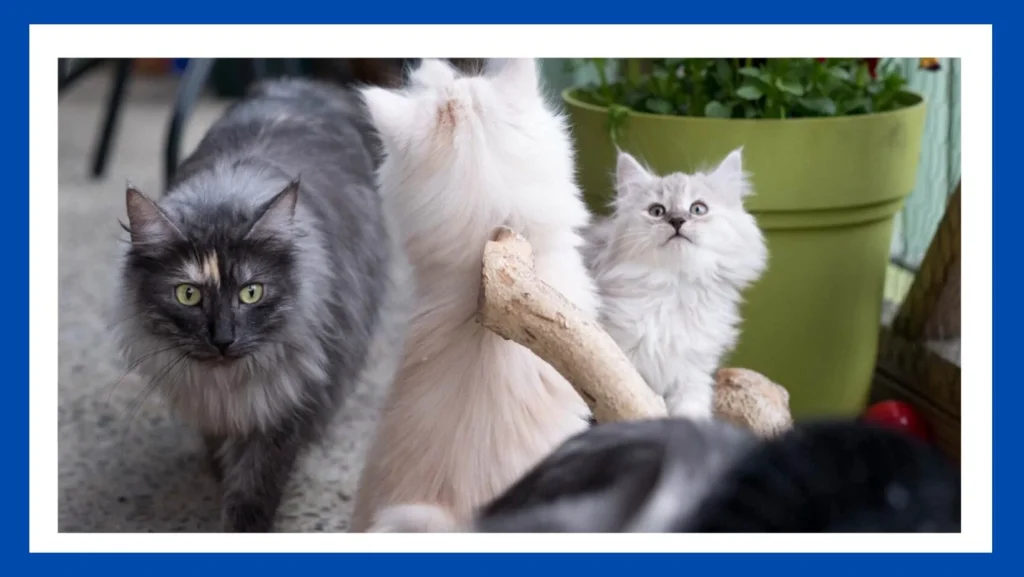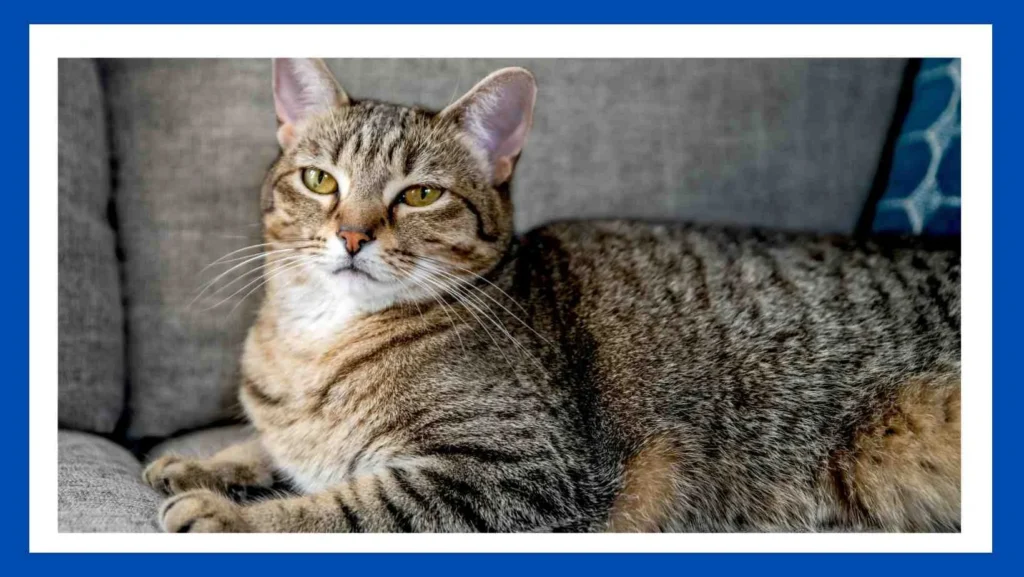How to Become a Cat Breeder Ethics & Explained

Being a Cat Breeder involves more than just owning a cat that produces kittens, just like being a cat owner involves more than just having a cat in your home. Physically, psychologically, and financially caring for their cats is a major duty for cat owners, and cat breeders are no exception.
If you’re interested in raising cats, you must follow moral guidelines to make sure your breeding is suitable and kind. We’ll discuss the costs and moral requirements of becoming a cat breeder in this post.
The exciting endeavour of cat breeding blends a love of cats with a desire to raise and improve different kinds. Even if it’s a worthwhile undertaking, it calls for commitment, expertise, and a thorough comprehension of the duties involved.
Introduction to Cat Breeding

A. Exploring the World of Cat Breeding
Producing cute kittens is not the only benefit of owning and raising cats. It’s a dedication to safeguarding the health and welfare of the animals while maintaining and improving particular breed characteristics.
B. Understanding the Responsibilities
A passion for cats is not the only requirement to become a cat breeder. It needs good care, moral breeding methods, and a thorough understanding of genetics.
Getting Started
A. Researching Breeds
To learn about the traits, dispositions, and possible health risks of different breeds, start by researching them. Select breeds that fit your interests and level of experience.
B. Creating a Breeding Plan
Describe your objectives, breeding partners, and deadlines in a thorough breeding strategy. To generate kittens of superior quality, this approach should take health and genetic variety into account.
C. Understanding Legalities and Regulations
Learn about the rules of animal care, licensing requirements, and local regulations that affect breeding techniques. Adherence is necessary to guarantee moral breeding.
Setting Up
A. Establishing a Suitable Breeding Space
Make sure your kitties have a cozy and secure space. A distinct area with nesting boxes and enough ventilation should be set aside for breeding.
B. Procuring Necessary Equipment and Supplies
Invest in necessities such as toys, bedding, medical supplies, and premium cat food. Make sure you have everything the cats require for their comfort and welfare.
Breeding Process
A. Selecting Breeding Pairs
Breeding couples should be carefully chosen based on genetic variety, temperament, and overall health. To preserve the integrity of the breed, refrain from breeding cats that have known hereditary problems.
B. Understanding Mating and Pregnancy in Cats
Learn about the phases of a cat’s life cycle, how they mate, and how to recognize pregnancy symptoms. Keep a watchful eye on pregnant cats to ensure a safe delivery.
C. Handling the Birthing Process
Get ready for the giving birth process. Create a peaceful atmosphere and be available to help if necessary. Seek advice and assistance from a veterinarian.
Prepare Yourself for the Expenses
It takes more than just a male and female cat to create kittens to breed cats. You will have several expenses to pay for, many of which are continuous.
Upfront Costs
You have to pay for cat equipment before you can even start. The essentials are food, bowls, bedding, scratching posts, nesting boxes, and litter boxes. These expenses can run into several hundred dollars or higher, depending on the number of breeding cats you intend to own.
After that, you’ll have to buy the cats. A solitary breeding cat can easily cost up to $1000, and the more uncommon the breed, the more expensive it will be. You need to budget for stud expenses even if you don’t intend to buy your male cat. The breeder who has a male cat for breeding receives payment from these payments. However, if you decide to buy a male cat, you will also have to build a stud.
Ongoing Costs
Other pet care supplies will ultimately wear out and need to be replaced, so food and litter boxes need to be regularly replenished. It will be necessary to buy toys frequently to ensure that your cats have enough enrichment and a variety of amusement options.
Your continuing expenses will also be mostly attributable to medical issues. For each cat or kitten you own, general veterinarian care, including annual physicals, treatment for diseases and accidents, sterilization treatments, microchipping, and immunizations, will need to be covered by your insurance. To guarantee the health of your breeding cats and any kittens born, you will also need to have the funds for genetic health testing, disease testing, and blood testing.
Other Costs
You will have to pay for the overhead associated with operating a business in addition to taking care of the cats. To just a few, these can include property taxes, insurance premiums, website or marketing expenditures, cat show equipment and fees, and registration fees.
How to Become an Ethical Cat Breeder

One thing to consider before starting a moral cat breeding business is your motivation for wanting to raise cats. This is not the career for you if the answer is financial gain.
The best interests of each cat and kitten under your care must come first for you as a breeder of cats. You might be prepared to start a cat breeding business if you have a strong commitment to the breed you are breeding and can take good care of the health and well-being of every cat you own.
1. Research Cat Breeding
It’s acceptable if this step takes longer than any other on this list. You must become knowledgeable about the specifics of cat breeding before you start. Naturally, experience teaches you some things, but you cannot take any chances when it comes to your cats’ safety and well-being. You will probably fail before you even start breeding if you don’t put much effort into this step.
Study up on both the giving birth and the reproducing processes of felines. Ask specific questions regarding cat care, breeding, and operating a morally responsible cat breeding company to any local cat breeders you may know.
2. Register with a Notable Cat Council
Enrolling in a reputable cat council, like the Cat Fancier’s Association, is among the finest methods to guarantee that you adhere to moral standards. A respectable cat council registration will hold you to a very high degree of morality and humane breeding.
3. Acquire a Male and Female Cat
Male and female breeding cats are available for purchase when you’re ready to get to work. Instead of purchasing these cats from a shelter or a friend, you must purchase them from a respectable breeder if you want to be sure your breeding cats have a superior pedigree.
You must provide a separate home for a male and female cat if you buy them both. Your female cat might become pregnant before she recovers completely from her most recent labor and delivery if she doesn’t have separate housing.
You will need to get in touch with another respectable breeder who has a male breeding cat if you choose not to buy a male cat. That’s the point at which student fees become relevant.
To confirm the student’s health, ask the breeder to provide you with proper medical and genetic data. Prepare yourself to supply your cat with the same kind of paperwork.
4. Register Your Cats
With the cat council of your choice, register all breeding cats on the active register. The organization you are enrolled with will determine the specifics of how to accomplish this.
5. Breed with Care and Intent to Improve the Breed
Make sure your priority when starting a cat breeding business is the welfare of the breed as well as the cats under your care. Because every species has different vulnerabilities, it’s critical to know which diseases to screen for.
6. Keep All Cats and Kittens in a Sanitary Environment
Make certain that every cat has access to wholesome food, clean water, a safe place to live, litter, and other requirements. All cats and kittens should have routine veterinary checkups, and your queen should have enough time to heal after giving birth.
7. Maintain All Records
Make certain that every cat has access to wholesome food, clean water, a safe place to live, litter, and other requirements. All cats and kittens should have routine veterinary checkups, and your queen should have enough time to heal after giving birth.
8. Only Sell Healthy Kittens
You should never sell a sick kitten to consumers without telling them beforehand. Similarly, don’t sell a kitten if it doesn’t yet have the appropriate level of protection against common infectious diseases. You cannot sell a kitten ethically if it has only been exposed to an infectious disease without telling potential buyers about it.
9. Remain Connected with Your Buyers
After you purchase a kitten, the story doesn’t end there for you. If the new owners have any questions or concerns in the future regarding their cats, you will need to maintain communication with them. You must offer guidance and ongoing instruction. But please understand that you are in no way intended to take the place of a veterinarian in their function.
How to Become a Cat Breeder in 14 Steps

Typically, a cat breeder is an enthusiast who is passionate about raising a specific breed of cat for exhibition, personal use, or other cat lovers. Cat breeding is typically not a profitable endeavor. After everything is said and done and food, supplies, and bills are paid, the majority of cat breeders will either break even or lose money.
On the other hand, some cat breeders produce kittens for sale in pet stores and work as commercial breeders. They can occasionally turn a profit when they do this on a big enough scale, but this is not the kind of business that can be run from home. Therefore, you must determine your motivation if you’re wondering how to start a cat breeding business. Cat breeding requires a lot of financial commitment and hundreds of thousands of dollars. A large number of cat breeders participate in breeding programs as hobby breeders of a particular breed. They might therefore only have an interest in breeding cats that are members of the same breed, or purebred.
The Connecticut General Assembly summarized federal and state rules and regulations that set standards for animal care provided by dog and cat breeders in the United States in a Standards of Care for Dog and Cat Breeders that was published online.
According to this synopsis, the federal Animal Welfare statute (AWA) mandates licensing and adherence to minimal standards of care for those who breed cats and dogs for pet stores, brokers, or research institutes. However, the statute does not apply to all animals in all circumstances. Breeders that sell directly to the public, hobby breeders (i.e., those who make no more than $500 gross from the sale of animals), and breeders with less than four breeding females are exempt from this requirement (9 CFR § 2.1(a)(3)).
1. Conduct Cat Breeder Market Research
If you’re interested in breeding cats as a company, the first thing new breeders should do is determine whether it can be profitable. That will make or break it because, according to the US Supreme Court, enterprises that raise animals for profit must be able to deduct their expenses as business expenses; if not, they are deemed hobby breeders.
Many breeders are engaged in raising breed standards rather than turning a profit; instead, they are producing pedigree cats to compete in cat competitions.
Only 12 percent of cat breeders in the United States, Canada, South Africa, Europe, and Australia broke even or made money, according to studies, according to Barbara C. French’s book Cat Breeding: Everything You Need to Know About Whelping, Breeding, Care, and Cattery.
The goal of hobby cat breeders nowadays is to enhance the qualities, attributes, temperament, and overall health of cats.
2. Analyze the Competition
Start your research on becoming a cat breeder so that you can begin analyzing competition. Compile information on hobby breeders who specialize in uncommon breeds as well as commercial vs. small enterprises. Cats with pedigrees are more valuable and frequently used for exhibition.
Look for kittens for sale online and find out where pet stores buy their new cats so they may resell them by giving them a call.
Explore the most popular cats by region and uncommon cat breeds in detail. After a brief Google search, I discovered that 29 out of 51 states had the highest number of searches per 100,000 persons for Bengal cats.
Look for information such as which cat breeds are most popular in the United States.
What differences exist in the costs of uncommon cats and common varieties?
What kind of kittens are produced by a commercial cattery for pet stores, and how much do kittens cost on average when bought from a pet store?
Look through Facebook, Craigslist, and online markets to see what cat breeds are offered for sale.
Gather as much information as you can, then put it all together in a spreadsheet to conduct market research.
3. Understand Costs to Open a Cat Breeding Business
It will cost a significant amount of money upfront if you are serious about beginning a cat breeding business. Cautionary breeders will set up spaces for their cats to live in so they may move around and play. You’ll need to set aside a whole room in your house if you additionally have your stud cat. A respectable breeder will charge more for high-quality and pedigree cats.
When purchasing young kittens for breeding, make sure they have a clean pedigree free of hereditary disorders and thoroughly investigate the breed and typical health issues. A reputable breeder will test their cats for genetics and register them with the Cat Fanciers’ Association. However, the cost of the DNA testing may be on you. Always allow space for unforeseen events. You never know when your mother’s cat might require an urgent cesarean delivery.
After accounting for all expenses, create a forecasted spending plan. For example, you may have to pay hundreds of dollars for veterinary treatment bills that are not covered by insurance.
You should budget for the following company expenses.
- Create an LLC and pay the formation charge
- Obtain business insurance.
- Obtain a valid cat breeder license.
- Provide specific spaces in your house for your breeding cats.
- If you choose this course, rent a space for a commercial breeding enterprise.
- Get a superior queen female cat so that you can breed it.
- Cover the breeder stud fee.
- veterinary bills
- Insurance for cats
- Drugs and/or supplements
- Food Cat litter
- Cat games
- Supplies for the Kennel: water dispenser for the bed, collars, scratching posts, litter bins, etc.
What Does it Cost to Open a Cat Breeder Business?

It is believed that the typical startup cost for a cat breeding business is between $7,000 and $20,000. The breed and buyer type you are targeting will determine the price. The typical monthly cost of a cattery can range from $300 to $700.
Naturally, this fluctuates based on the quantity and kind of cats you are breeding.
Recouping your startup costs can take two to three years if you’re in the cat breeding industry. Plan for the expenses of maintaining a healthy cat as well as the time and space required to provide them with a good existence.
Business Supplies for Cat Breeders
What kind of materials are needed to construct a building that can be used to produce kittens? The estimated materials and business expenses are listed below for your planning.
- LLC formation costs between $75 and $100 one time.
- Coverage for your company’s property and general liability costs between $30 and $70 per month.
- Invest $1,000–$10,000+ per cat or more from a recognized breeder with breeding rights to purchase kittens.
- DNA and health testing ($100 for each cat, one-time)
- $100-250 one-time stud fee
- Health insurance for cats ($20–$30 each month)
- Regular check-ups and veterinary care ($400–$1,000/year)
- Food ($100 per month)
- Cat litter costs $20 a month.
- Supplies: water dispenser, collar, scratch post, toys, litter bins, and bed. ($150/single instance)
- Memberships, licenses, and permissions ($100–$200/year)
4. Form a Legal Business Entity
You must select a business structure if you intend to run a successful home business or a commercial cat breeding operation. To take into account are four different kinds of corporate entities. Generally speaking, for small to medium-sized enterprises, an LLC is the ideal option since it shields you, your assets, and your company in the event of a lawsuit.
You should also become knowledgeable about corporations, partnerships, and sole proprietorships. Whichever option you select will have an impact on your business, taxes, and potential liability.
An overview of each of these structures is given below:
Limited Liability Corporation (LLC)
We believe that incorporating your breeding company as an LLC is the best option. Both you personally and the company are protected by an LLC. You won’t run the risk of becoming bankrupt because you won’t be held accountable if you or the company is sued, and your assets will be safeguarded. Additionally, an LLC structure turns you into a self-employed person, meaning you can hire staff as needed and pay taxes on your profits.
Sole Proprietorship
Being a sole proprietor gives you total control over your company, but it also means that it isn’t a separate legal entity. That being said, your personal and corporate assets and obligations are inextricably linked. This structure carries considerable risk and provides limited protection in the event of an unforeseen circumstance, legal action, or tax fraud. You run the risk of being bankrupt since you are personally responsible for everything that happens.
Partnership
If you and your spouse want to divide up the obligations involved in cat breeding, you may want to consider forming a partnership. Establishing your company as a partnership, however, may lead to problems down the road with decision-making. It can be set up as a limited partnership, where one partner has more influence than the other, or each partner can have limitless personal liabilities or equally share the duties. The employment tax on earnings is a personal obligation for each of the participating partners.
Corporation
It is not advisable for small to mid-sized firms to consider incorporating. A corporation, which is designed to be independent of the shareholder, is perfect for huge businesses. The company is the only entity that is responsible for everything, pays taxes, claims profits, and stands alone. Typically, corporations are used by big enterprises to generate capital and conduct business with other big businesses.
5. Register Your Business For Taxes
To pay taxes, open a company bank account, and obtain a credit card, you must obtain an Employee ID Number, or EIN, as soon as your firm is incorporated. The IRS offers a free EIN registration process. It should be noted that a hobby breeder cannot be considered a legitimate business until they turn a profit of at least $500 each year.
6. Setup Your Accounting For Success
Starting as soon as you make the first purchase for your firm or something related to it is one of the foundational principles of accounting. Keep track of every expense related to the cats and the business, including formation costs, services, supplies, and other costs. When tax season arrives, maintaining up-to-date and organized bookkeeping will spare you stress.
Accounting Software
You may save a ton of time and maintain organization by viewing and managing all of your business expenses with accounting software. One of the most widely used accounting programs is Quickbooks, which is also user-friendly. You can generate monthly reports, keep an eye on your spending, and manage your sales and costs all from your dashboard. When tax season rolls around, you won’t have to waste time sorting through bank statements and receipts. You may automate a comprehensive financial report using Quickbooks.
Find an Accountant
You can maximize your tax return and optimize your budget by hiring an accountant to arrange and balance your company’s finances. To make sure your taxes are correctly filed and you receive the most return possible, you can engage an accountant specifically for your taxes.
Get a Business Bank Account
It is advised that you open a business bank account to keep your records organized and to segregate all of your work-related costs from your ones. You may also link QuickBooks to your business bank account to keep track of your monthly expenses. Designating a certain bank helps to keep costs organized and minimizes confusion when submitting taxes.
Apply For a Business Credit Card
Compared to a personal credit card, a business credit card will provide you with a larger line of credit with better terms, as well as assist you in managing your cash flow and keeping your costs in check. If you’re just starting as a breeder, a credit card might help you cover your costs until you start making money.
Rewards for using a business credit card:
- separates personal spending and provides purchase protection
- simpler to be approved for a loan
- facilitates cash flow
- Sorts out the costs
- increases credit
- Improved Words
7. Obtain Licenses and Permits
To stay out of trouble with the law, companies should consider getting a small company license, since it can be necessary. It also confirms the legitimacy of your cat breeding company. The US Small Business Administration can help you launch your company and you may apply for a business license here. To find out if you need a license or a permit to breed cats, check your local laws.
Additionally, breeders of cats need to register with the Cat Fanciers’ Association for both their cattery and each litter they raise. This validates the pedigreed cats for a cat show and future breeding, giving you a reputation. It is advisable to register your feline collection, including queens, their offspring, and prospective kittens.
“Show Cats Online” is an excellent community and registration for cat breeders. There, you may register your cats to take part in a virtual cat exhibition and locate a list of cat clubs worldwide that you can join.
8. Get Business Insurance
To safeguard your business and yourself as a cat breeder, business insurance is essential. Many breeders, even those with small catteries, have general liability insurance.
Here’s an illustration of why it’s advised.
Let’s say you have to transport a kitten you are selling to a customer who lives on the other side of the country. They cover the cost of the cat, the airfare, and the shipping of the kitten. Bad weather causes a one-day delay in the flight, which is beyond your control. This indicates that the kitten is not delivered to the recipients on schedule. They end up suing you. General liability insurance will shield you against fines in this situation that could total thousands or even hundreds of thousands of dollars.
9. Create an Office Space
Every firm has administrative duties. Create a space for yourself in your spare room where you can sit down and work on bookkeeping, taxes, website development, and interacting with your cat community on the internet. This will prevent work from piling up on the kitchen table and help you maintain organization in your home business. You can deduct your home office from your taxes and claim it as a business expense.
10. Source Your Equipment
For cats to be kept apart, secure, and socialized, a cattery needs the appropriate supplies. These items are possible necessities for cat breeding:
- Crates and Kennels
- Mattresses
- boxes for litter
- Playthings
- Scratching surfaces
- Food service equipment
- Collars
- grooming products
- kitten-sized bottles
11. Establish Your Brand
Coming up with names for your cattery and building your brand and business may be enjoyable. Perhaps the breed you concentrate on is the focal point of your brand. Your company will be reflected in your brand and cattery name, which will also provide consistency to your social media and website. You should design a logo for your website and promotional materials. Creating a brand for your company gives it a polished, official appearance.
12. Join Associations and Groups
You can network with other breeders and cat lovers by joining one of the many cat clubs available to you as a breeder. You may find trustworthy breeders here, as well as a stud, kittens, and queens for upcoming breedings, and information exchange. Additionally, you should register your cats and litters with the Association of Cat Fanciers.
This will demonstrate your credibility as a cat breeder, your ability to verify your pedigree cats, and your involvement in the breeding program.
13. Focus on Marketing
Are you planning to advertise your cat breeding company? This might be a blog post, social media sites, YouTube videos, a newsletter you start inviting people to subscribe to, a website, or fliers you hand out around town.
You can raise awareness about ethical breeding and the significance of treating this duty with seriousness through your material. Your website is an excellent resource for informing people about ethical breeding methods, and how a trustworthy breeder enhances a cat’s traits and disposition and protects the cat’s genetic makeup for the next generations.
14. Focus on the Customer
You must deal with clients if you are selling goods or providing a service. A company’s foundation and source of personalization is its customer service. Let’s start with how your clients can contact you. Is there a phone number or email address that visitors can use to reach you on your website?
Encouraging your customers and followers to interact with you is a top concern. This will increase confidence because it demonstrates your dedication to your company and that you are a real person to speak with. Providing contact information, having an email capture form on your website, writing a bio about yourself and your location, publishing your credentials and licenses, and registering your business to demonstrate that you are a certified breeder are a few ways to improve your customer service. Provide your working hours or the times that you may be reached.
When you sell kittens, concentrate on the customer’s experience and make it simple for them to pay you money and have their questions answered. To avoid legal problems, keep everything formal and well-documented by creating a contract or re-home and release form.
Demonstrate to your clients that you are a trustworthy breeder who is devoted to the welfare of your kittens.
Maybe Useful
FAQs
1. How much does it cost to start as a cat breeder?
Initial expenses differ according to breed, gear, and medical care. Initial expenses can vary from a few thousand to tens of thousands of dollars on average.
2. Is cat breeding profitable?
Financial rewards are possible from cat breeding, but it’s crucial to put the cats’ needs ahead of your own. First and foremost should always be ethical breeding techniques.
3. What are the essential legal considerations for cat breeding?
Legal factors include securing the required licenses, following breeding rules, and making sure local animal welfare ordinances are followed.
4. How do I choose the right breeding pairs?
When choosing breeding couples, take into account factors including temperament, genetics, health, and breed standards. See a veterinarian or seasoned breeder for advice.
5. How can I ensure the kittens go to good homes?
To make sure the kittens go to loving and responsible homes, prospective adopters must be carefully screened, home visits must be made, and adoption contracts must be created.
Conclusion
Being a cat breeder is a rewarding career that calls for commitment, expertise, and a strong affinity for cats. Maintaining moral breeding practices and putting the cats’ welfare first are obligations.






